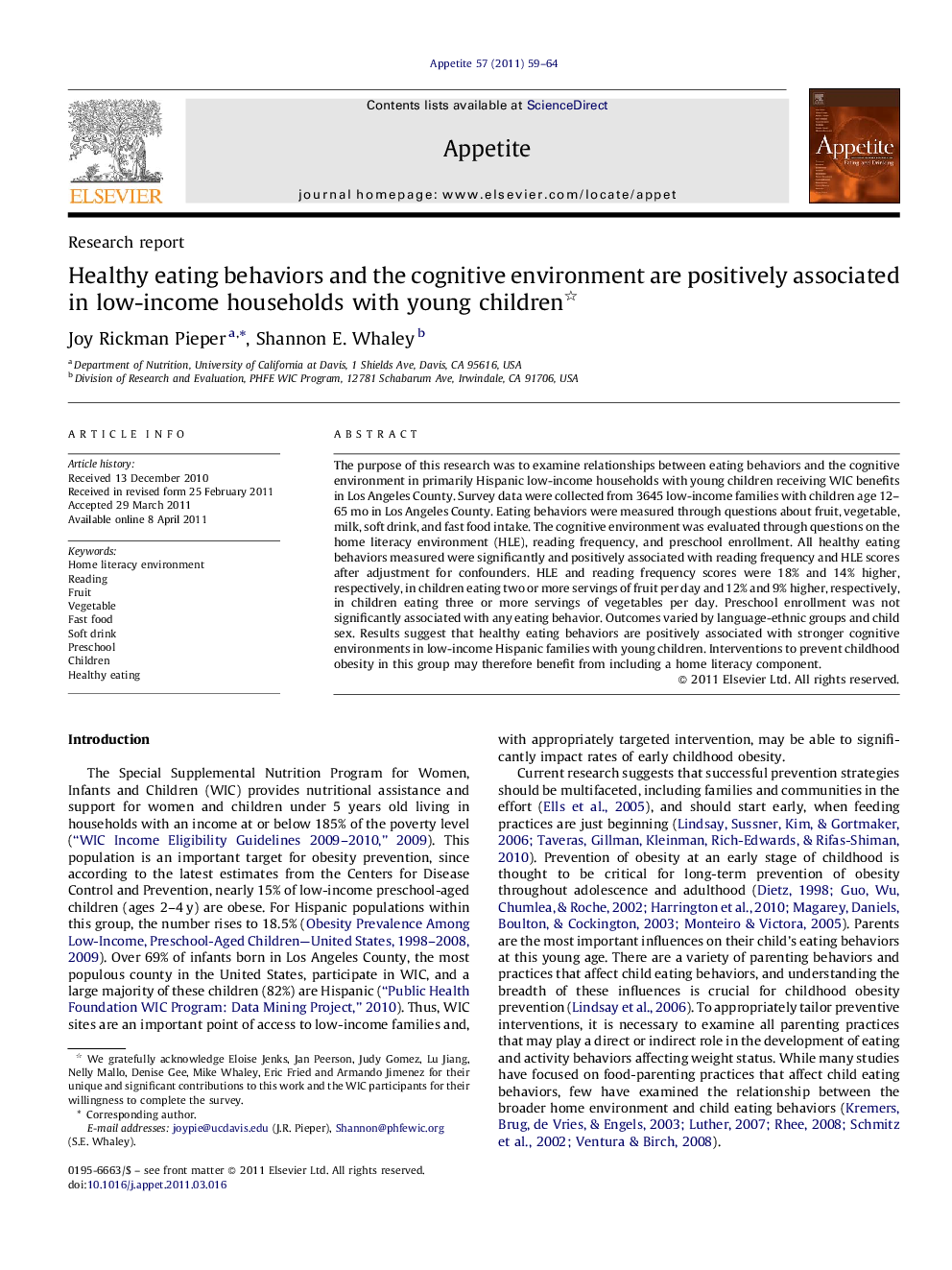| Article ID | Journal | Published Year | Pages | File Type |
|---|---|---|---|---|
| 940277 | Appetite | 2011 | 6 Pages |
The purpose of this research was to examine relationships between eating behaviors and the cognitive environment in primarily Hispanic low-income households with young children receiving WIC benefits in Los Angeles County. Survey data were collected from 3645 low-income families with children age 12–65 mo in Los Angeles County. Eating behaviors were measured through questions about fruit, vegetable, milk, soft drink, and fast food intake. The cognitive environment was evaluated through questions on the home literacy environment (HLE), reading frequency, and preschool enrollment. All healthy eating behaviors measured were significantly and positively associated with reading frequency and HLE scores after adjustment for confounders. HLE and reading frequency scores were 18% and 14% higher, respectively, in children eating two or more servings of fruit per day and 12% and 9% higher, respectively, in children eating three or more servings of vegetables per day. Preschool enrollment was not significantly associated with any eating behavior. Outcomes varied by language-ethnic groups and child sex. Results suggest that healthy eating behaviors are positively associated with stronger cognitive environments in low-income Hispanic families with young children. Interventions to prevent childhood obesity in this group may therefore benefit from including a home literacy component.
► We examine food intakes and the cognitive environment in low-income young children. ► Children who are read to more have higher fruit, vegetable, and milk intakes. ► Children who are read to more have lower soft drink and fast food intakes. ► Childhood obesity prevention interventions may benefit from a literacy component.
